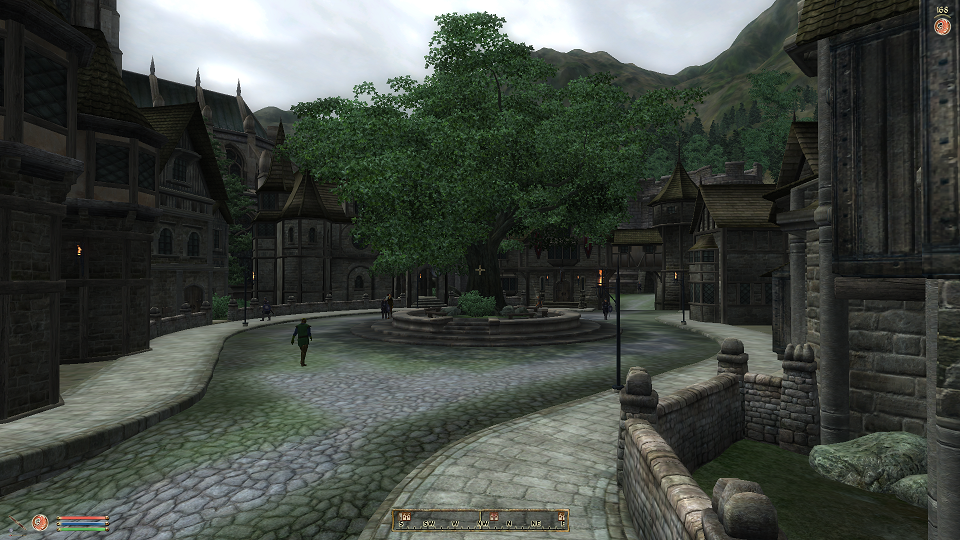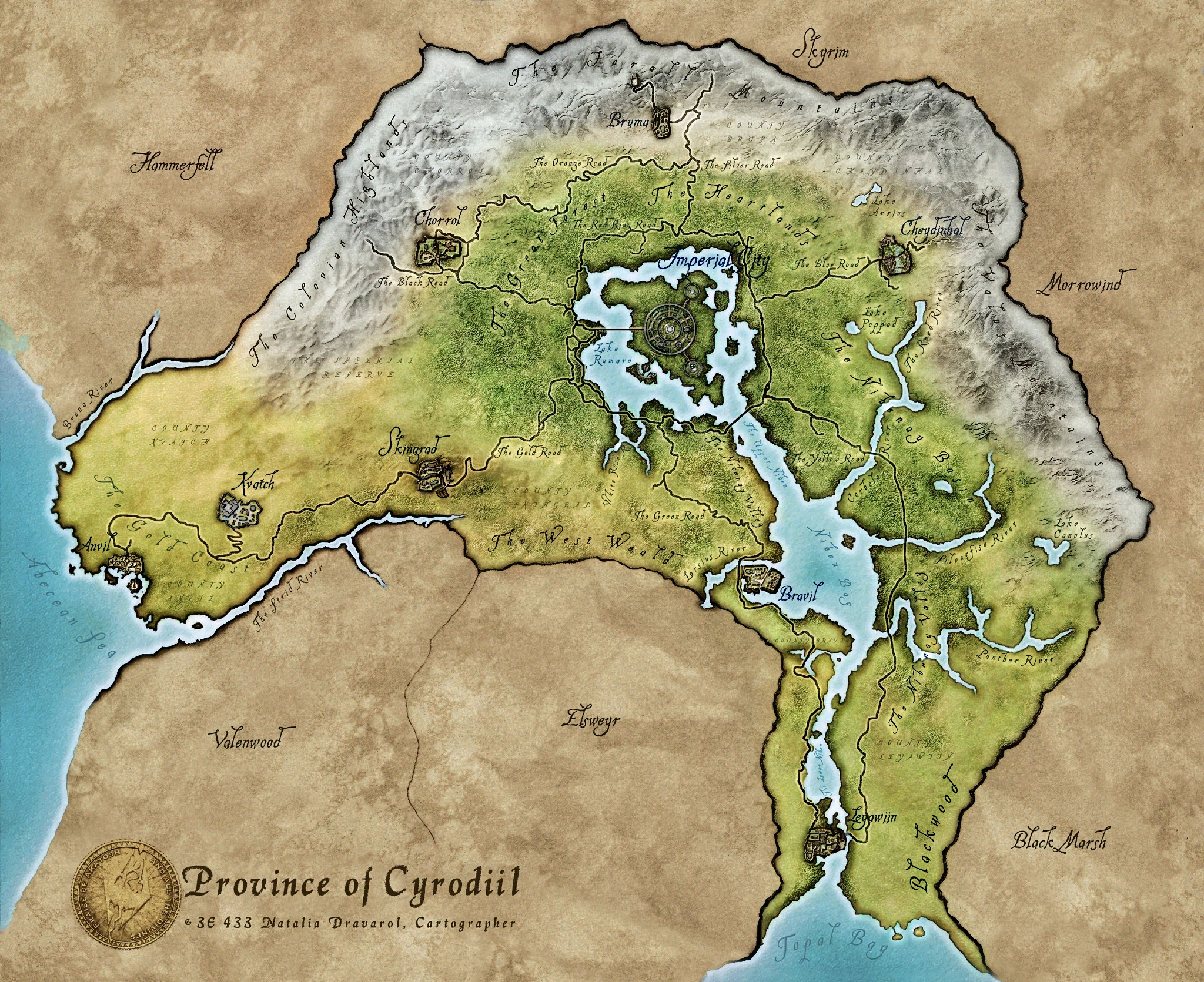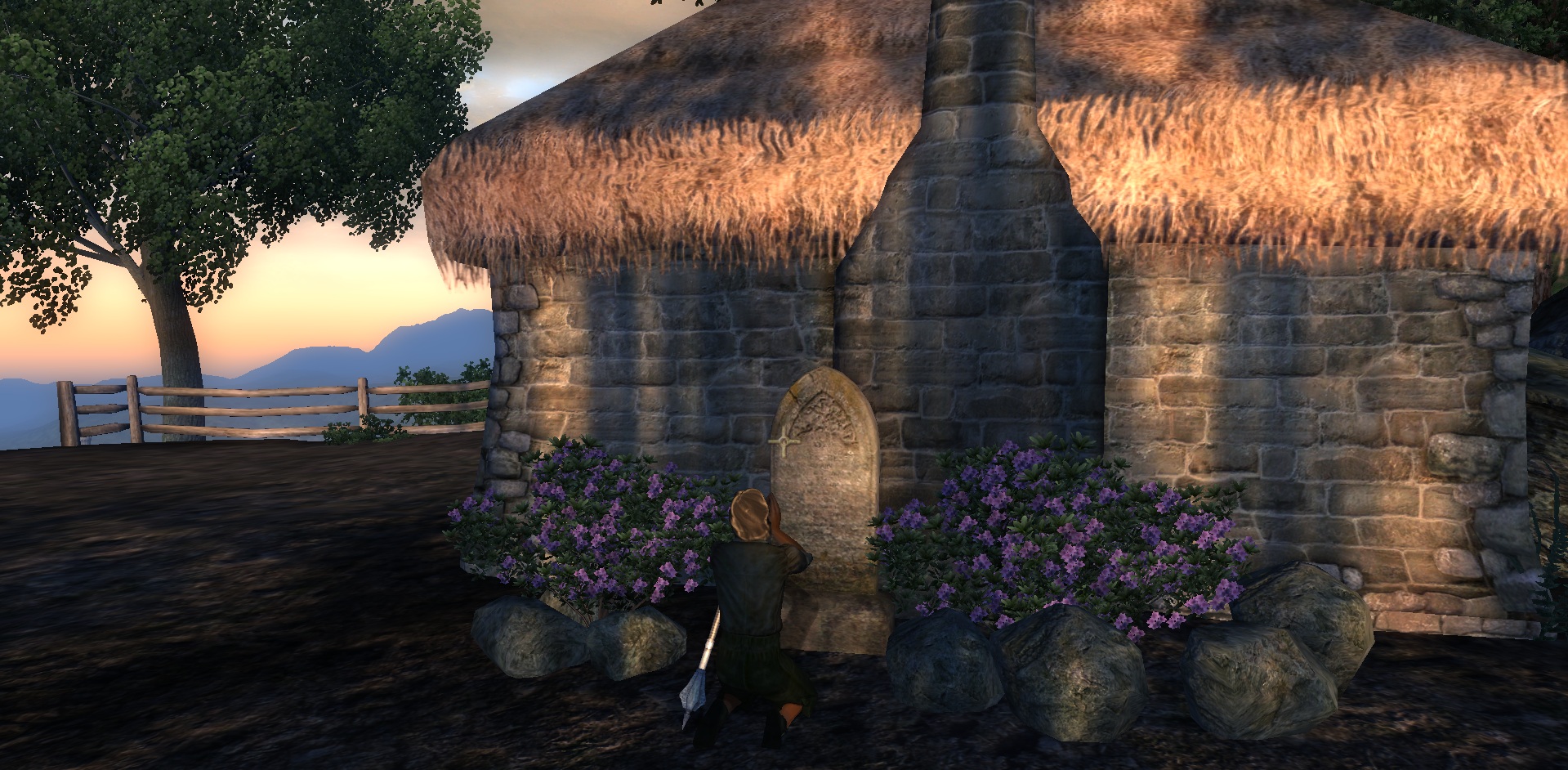Oblivion
Filed Under: Gaming

Beneath the Great Oak of Chorrol I approach member of the town watch. Apart from his Chorrol uniform, he is an exact copy of every other guardsman in the game. The gruff stare. The podgy face. The stubble. He tells me he is on duty but doesn’t stop me from launching into conversation - I suppose he’s aware that while I’m talking to him, everything else in the world, including lawbreakers, is frozen.
The conversation goes like this: I boast about some feat I’ve accomplished, then I admire his few positive features, then I crack a stinking joke, then I wrap up by attempting to coerce him into liking me more. Then I do it all again. I am speaking at such breakneck speed that he is barely able to respond before the next phrase is blasted from my mouth. From moment to moment his disposition towards me varies wildly, as I alternately offend and impress him.
At the back of my mind I wonder whether this counts as NPC torture. At the front of my mind I continue clicking away at the conversation wheel. You see, this is how I get better at talking to people.

Let me explain: In Oblivion, when you level up, you pick three attributes to improve. Each attribute is tied to three skills. Depending on how much you improved those three skills since your last level-up, you’ll get to increase that attribute by up to 5 points, instead of a meagre 1 point.
Getting to increase three of your chosen attributes by 5 points each time you level up is efficient levelling, which matters because in the unmodded game your enemies level up with you, and you won’t have any advantage over them unless your attributes and skills are as good as they can be. This is Oblivion’s ‘levelling problem’, and it’s surprising that the game escaped playtesting without a fix for it, and even more surprising that it went on to be such an enormous success in spite of it. Of all the reasons I can think of why people don’t look back so fondly on Oblivion as they do on Morrowind, the level scaling problem has to be the biggest.
It’s certainly put me off regular trips back to Cyrodiil - too many times have I reached level 15 only to find myself to be the weakest entity in the entire gameworld. This time I’m playing with Francesco’s mod installed (sans extra creatures and items), which overhauls the level scaling so that it still exists but is less of a joy-killing nightmare hellride, though I’m not yet a high enough level to have felt its impact. So I might not need to efficiently level to the degree that I am. It’s strangely satisfying, though. (And old habits die hard!)
The Personality attribute is tied to Mercantile, Illusion magic and Speechcraft, so if I want to get that juicy +5 to Personality next time I level up, I’ve got to practice these skills, which means playing the conversation minigame to up my Speechcraft. By this point in my playthrough I’ve gone from actually paying attention to the bizarre and tedious conversation minigame to, well, this:

Oblivion is weird. Amazing. Weird.
It’s also 10 years old as of last Sunday, which is a scary and impressive fact. It means that 10 years ago 12-year-old me walked into GAME on the high street and picked it off the shelf. I’d read about this RPG in PC Gamer. I’d played Morrowind enough for it to have left a permanent mark on my soul. The cashier asked if I was sure my PC could run it. I scoffed at him and strode out towards the bus stop.
My PC couldn’t run it. It lagged, groaned, creaked, had strange graphical errors and crashed at regular intervals1, but the main thing I remember is the audio being broken. Every time an object clattered to the floor my speakers would screech like they’d been possessed by avant-garde music demons, making a sound somewhere between scratchy white noise and the actual thing it was supposed to sound like. 12-year-old me persisted for a while, but eventually gave up.
Years later I bought it again on Xbox 360 and this time it wasn’t a buggy experience2, so I really got into it for the first time. Later still I bought it again on Steam with all its DLC and expansions on Steam.
There’s still a lot of Oblivion that I’ve yet to experience. I’ve never even touched the Shivering Isles expansion, or finished the main quest, or finished any of the guild questlines. I just kind of stop once I reach a certain point, and when I return I play with different mods so I have to abandon my old character. I don’t think this is a bad cycle or anything. It’s just not helpful when it comes to ever reaching the point where I feel like I’ve seen all there is to see.
I’ll leave you with this screenshot of the game I took five years ago:

Like Oblivion as a whole, there’s a lot going on in there.
Further Reading
The Oblivion bits (which start here) are obviously the most relevant, but I recommend every entry in Rutskarn’s Altered Scrolls series for a really well-written, insightful in-depth look at the Elder Scrolls games. Here’s a quote:
I intimated earlier in the series that there is no such thing, broadly speaking, as an unsuccessful Elder Scrolls game. The least you can expect of any main franchise entry is success on its own terms, at its own goals, in its own era. This doesn’t guarantee it’ll still be a success tomorrow or would have been one yesterday.